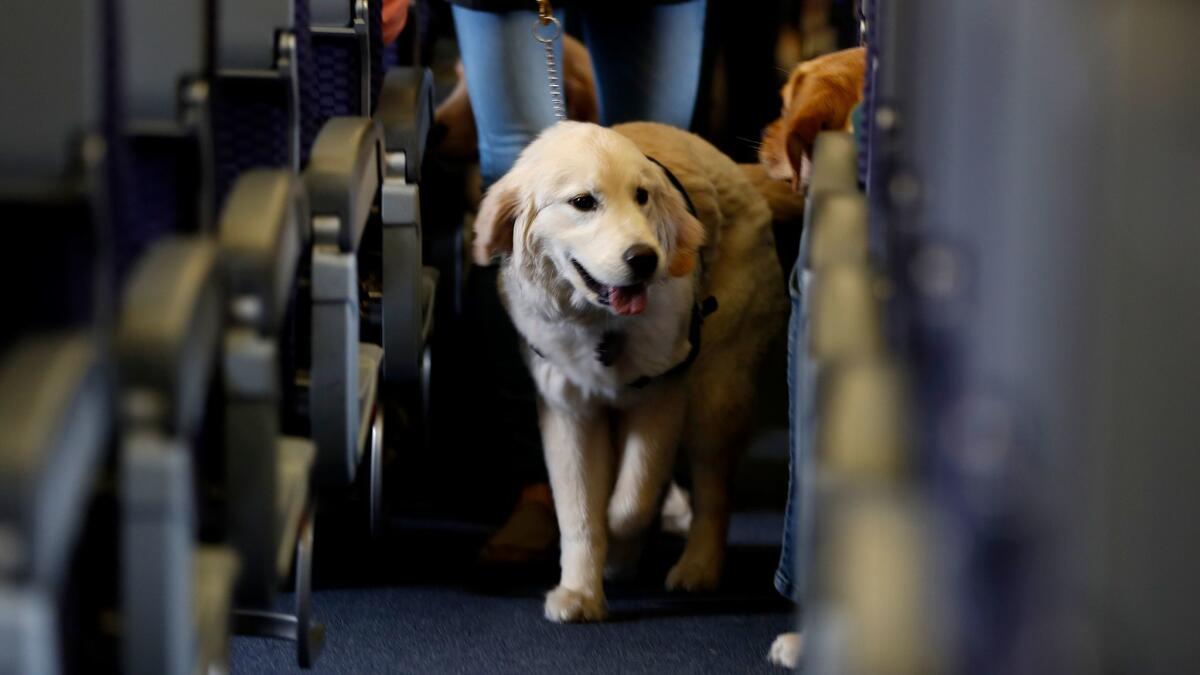Delta Air Lines adds new requirements for passengers flying with service animals

- Share via
Responding to an increase in such incidents as animal bites, barking and defecation, Delta Air Lines has announced new requirements for passengers who want to fly with a service animal or emotional support animal.
Starting March 1, all passengers who want to fly with an animal in the cabin need to provide proof of the animal’s “health or vaccinations” 48 hours in advance of the flight, plus a document signed by the passenger confirming that the animal can behave in the cabin of a plane.
The new policy is in addition to a preexisting requirement for people with psychiatric service or emotional support animals: Such passengers must bring a letter signed by a doctor or a licensed mental health professional attesting that the passenger needs to fly with the animal.
Animals brought onto a plane must fit on or under the seat with the passenger and cannot obstruct the aisle.
The U.S. Department of Transportation has adopted general guidelines to allow passengers to fly with emotional support animals but has given airlines the authority to adopt tougher restrictions.
Delta said the new policy comes in response to an 84% increase in animal incidents since 2016. Those incidents include animals urinating, defecating, biting, barking and lunging on planes, the airline said, adding that a passenger was mauled by a 50-pound dog on a Delta flight from Atlanta to San Diego last year.
The Atlanta-based airline said it carries about 700 support animals a day or nearly 250,000 annually, among the 180 million passengers who fly Delta each year. Emotional support animals are usually dogs or cats, but the airline said passengers have tried to bring turkeys, possums, snakes, spiders and other creatures on board.
“The rise in serious incidents involving animals in flight leads us to believe that the lack of regulations in both health and training screening for these animals is creating unsafe conditions across U.S. air travel,” said John Laughter, Delta’s vice president for corporate safety, security and compliance.
The Assn. of Flight Attendants issued a statement in support of Delta’s actions.
“We are not surprised by their data that shows an 84% increase in reported animal incidents since 2016,” the statement said. “We are seeing more and more animals in the cabin and it appears there is growing abuse of the system.”
To read more about the travel and tourism industries, follow @hugomartin on Twitter.
UPDATES:
1 p.m.: This article was updated to include a comment from the Assn. of Flight Attendants.
The article was originally published at 11:10 a.m.
More to Read
Inside the business of entertainment
The Wide Shot brings you news, analysis and insights on everything from streaming wars to production — and what it all means for the future.
You may occasionally receive promotional content from the Los Angeles Times.











